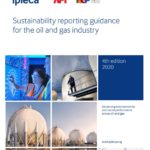Companies and organisations will get a new and simpler "score card" to measure their social and environmental impact when the Global Reporting Initiative (GRI) kicks off a major conference this week.
Backed by former U.S. Vice-President Al Gore as well as executives from giant oil companies, electronics producers and banks, the Conference on Sustainability and Reporting, which hopes to boost the number of companies that measure how they use natural resources and how fairly they hire staff. Currently around 1,000 companies and organisations make reports using GRI’s system, including Nike (NKE.N: Quote, Profile, Research), Philips (PHG.AS: Quote, Profile, Research), Microsoft (MSFT.O: Quote, Profile, Research), Petrobras (PETR4.SA: Quote, Profile, Research), Novartis (NOVN.VX: Quote, Profile, Research) and Shell (RDSa.L: Quote, Profile, Research). The new guidelines, dubbed G3 as opposed to the current G2 guidelines, should make GRI easier to implement.
"It’s more user-friendly. The number of indicators has been cut to 79 from 97," said GRI Chief Executive Ernst Ligteringen.
Companies can measure their sustainability performance at different levels to cater to the different size and needs of their organisation. Those wanting an A-plus graded report, including an audit from firms like KPMG [KPMG.UL], will have to do more work, said Dutch financial group ABN AMRO (AAH.AS: Quote, Profile, Research). The grading indicates the level of detail required in the report, rather than any judgement on the firm’s responsibility credentials.
"Last year we were in accordance with GRI because we had policies in place for diversity and civil rights. This year it will be more challenging. Now we have to report exactly how many male, female, ethnic minorities, disabled staff we employ. It’ll be more about what we’re truly doing," said Sandrijn Weites, senior vice president for sustainability strategy and reporting at ABN AMRO.
Even a window cleaner with 12 employees can benefit from a sustainability report, as a company in The Hague found when it clinched a new contract from a hospital after the manager specified the detergents he used and the staff he employed, according to Teresa Fogelberg, GRI’s director of business engagement.
But others warned against making it as easy to clean an image as it is to clean a window.
"There is a real danger of greenwashing," said Peter Blom, the chief executive of Dutch ethical bank Triodos.
He advocated that companies should have their sustainability reports verified by auditors and said governments may have to set guidelines.
ABN AMRO’s Weites said he wanted a level playing field in which all companies had to report performance under such guidelines. Competitors who currently do not simply fly under the radar and avoid criticism, he complained.
"What you see is that a number of transactions are not taken on board by the tier one banks, for instance credit for projects in China, Russia and India to clear rain forests, or open gold and copper mines, but that they are accepted by tier two banks," Weites said.
The new GRI standards were developed by the companies and organisations themselves in a three-year process, and several financial exchanges around the world will require GRI reports for inclusion in certain indexes.
At the conference, the United Nations will agree to align the GRI rules with its Global Compact principles for responsible business to deliver a single set of performance indicators.
Reporting according to GRI does not, however, mean a stamp of approval, just compliance with the reporting requirements.
"You can be a crap company and report in GRI," Blom said.
Indeed GRI’s Ligteringen recalled a company from what he called the "tobacco and arms sin trades" which fulfilled the reporting requirements but achieved terrible scores.
But disclosure is an important part of the battle. Any improvement can only begin when the facts are known, says energy company Petrobras.
"We need to be transparent. That is crucial for our corporate social responsibility," said Ana Paula Grether de Mello Carvalho at Petrobras.



